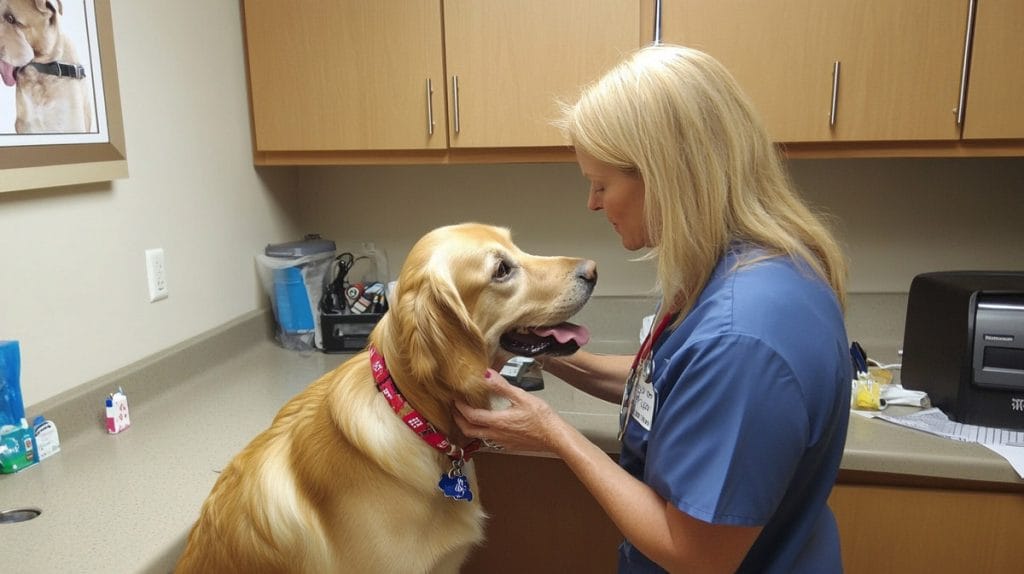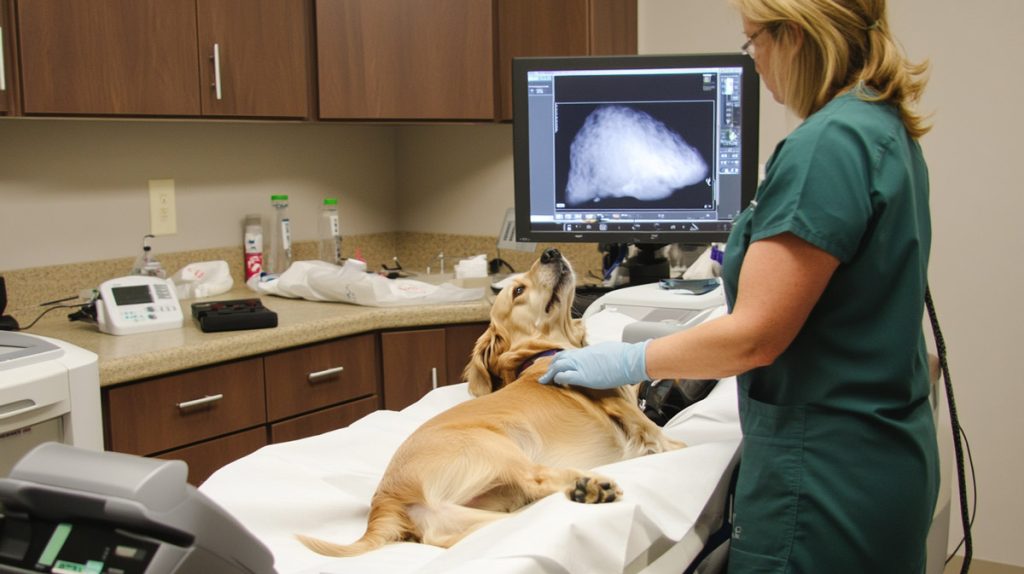Last year, we faced the heartbreaking loss of our beloved Beaglier, Connor, at 11.5 years old. Connor was more than a pet; he was family. He loved exploring different spaces, following his nose to every intriguing scent, visiting the beach, and curling up on the sofa for cuddles. His tail wagged through it all, a constant reminder of his joy and zest for life.
When Connor began showing subtle signs of discomfort, we took him to the vet immediately. His initial tests gave us hope, showing no major health issues beyond his existing mild arthritis and gastrointestinal discomfort typical for his age. But within weeks, as his condition worsened, an ultrasound revealed aggressive cancerous growths, and surgery was no longer an option. Connor’s illness progressed swiftly and silently, leaving us devastated.

Connor’s story is why we started this blog. To help others enjoy a long, happy life with their pups. November is Pet Cancer Awareness Month—a time to educate others on early detection, the signs of cancer in pets, and proactive preventive care to support our pets through life’s health challenges.
On this page:
- Understanding Cancer in Dogs
- Recognising the Warning Signs
- Routine Vet Visits: The Foundation of Preventive Care
- Breed-Specific Health Considerations
- Key Tests and Check-Ups for Early Cancer Detection
- Reducing Cancer Risk with Lifestyle Choices
- Specialist Care for Pet Cancer in Melbourne
- Supporting Pet Cancer Research
Understanding Cancer in Dogs: Prevalence and the Importance of Awareness
Cancer affects an estimated one in four dogs in Australia, and nearly half of all dogs over the age of ten develop some form of cancer. This statistic highlights the importance of awareness and vigilance, particularly as pets age. The Australian Companion Animal Registry of Cancers (ACARCinom) plays a crucial role in collecting data that helps veterinarians and researchers identify cancer trends, risk factors, and potential preventive measures.
Recognising the Warning Signs: Symptoms of Cancer in Dogs
Cancer in dogs can be challenging to detect early because its symptoms often mimic less severe conditions. If you notice any of the following signs, consult your veterinarian promptly:
- Unusual lumps or bumps that grow over time
- Sores or wounds that don’t heal
- Weight loss or changes in appetite
- Difficulty eating, swallowing, or moving
- Any unusual behaviour or reluctance to exercise
While these symptoms don’t necessarily indicate cancer, they should be investigated. Early detection can significantly improve treatment options and your dog’s quality of life.
Enhancing Cancer Prevention in Dogs: Vet Visits, Check-Ups, and Breed-Specific Care
Taking preventive steps and regularly visiting the vet can make a tremendous difference in managing health issues and catching problems early. Here’s how to structure preventive care for your dog at different life stages based on breed-specific considerations.
Routine Vet Visits: The Foundation of Preventive Care
Regular veterinary visits should be a cornerstone of your dog’s health plan, with adjustments as they age.
- Puppies and Young Adults (0-5 years): During these years, the focus is on vaccinations, parasite prevention, and general health assessments. Discuss any breed-specific health risks with your vet and the importance of monitoring for early warning signs.
- Adults (5-10 years): As dogs approach middle age, introduce routine bloodwork and baseline imaging (like X-rays or ultrasounds). These screenings can provide valuable early insights into potential health issues for breeds prone to cancers such as lymphoma (e.g., Golden Retrievers) or mast cell tumours (e.g., Boxers).
- Seniors (10+ years): Consider semi-annual check-ups with more comprehensive diagnostics for senior dogs. Blood tests, ultrasounds, and advanced screenings (like CT or MRI scans) are essential for early detection. Given that nearly half of all dogs over ten will develop cancer, these check-ups can be lifesaving.

Breed-Specific Health Considerations
Some breeds, like Bernese Mountain Dogs and Flat-Coated Retrievers, are predisposed to certain cancers, such as histiocytic sarcoma. Discussing these risks with your vet helps ensure proactive, breed-specific screening plans tailored to your dog’s needs.
Dog Breeds in Australia and Their Cancer Risks
The following are some of the most common dog breeds in Australia, with higher rates of cancer cases reported. If you own one of these breeds, regular screenings and preventive care can be especially valuable:
- Staffordshire Bull Terrier (8.0%) – Known for their muscular build, but may be prone to conditions like mast cell tumours.
- Labrador Retriever (5.4%) – Friendly and popular, Labradors are at a higher risk for lymphoma.
- American Staffordshire Terrier (4.5%) – Similar to the Staffordshire Bull Terrier, they can be prone to skin tumours.
- Boxer (4.2%) – Often at risk for cancers such as lymphoma and mast cell tumours.
- Mixed Breeds (4.1%) – Mixed breed dogs may inherit various cancer risks based on their genetic background.
- Border Collie (3.1%) – Generally resilient but may develop certain cancers as they age.
- Beagle (3.0%) – Known for their toughness, though older Beagles can develop skin-related tumours.
- Jack Russell Terrier (3.0%) – Prone to skin and mammary tumours, particularly in older age.
- German Shepherd (2.8%) – A breed at risk for cancers like hemangiosarcoma, especially in senior years.
- Golden Retriever (2.7%) – Known to have a higher prevalence of lymphoma and hemangiosarcoma.
Targeted Testing and Screenings
Based on your dog’s breed, your vet may recommend specific tests to detect cancer early. For example, larger breeds prone to bone cancers might benefit from periodic limb X-rays, while dogs with higher risks for skin tumours could require regular skin checks. These targeted screenings can catch potential issues before they progress.
Lifestyle Adjustments for At-Risk Breeds
Lifestyle factors like diet, exercise, and minimising exposure to environmental toxins can help reduce cancer risks. Discuss these adjustments with your vet to support a healthier and safer life for your dog.
By being aware of breed-specific risks and taking proactive steps, pet owners can help enhance their dogs’ quality of life and reduce their risk of developing cancer.
Key Tests and Check-Ups for Early Cancer Detection
Early detection is critical in managing cancer, and veterinarians have several tools to assist with this:
- Blood Tests: Routine blood panels can reveal subtle shifts in organ function or cell counts, which may signal health concerns early on.
- Ultrasounds and X-rays: Imaging techniques like ultrasounds and X-rays are valuable for spotting internal growths or abnormalities, especially for middle-aged and senior dogs.
- Fine Needle Aspiration or Biopsy: If a lump or mass is found, a biopsy can determine whether it is benign or malignant, enabling timely intervention if needed.
- Genetic Testing: Some pet owners use genetic testing to identify breed-related health risks. While it doesn’t prevent cancer, it can guide early screenings and enhance vigilance.

Reducing Cancer Risk with Lifestyle Choices
While we may not be able to prevent cancer entirely, these lifestyle adjustments can help minimise risks:
- Healthy Diet and Regular Exercise: Feeding a balanced diet and avoiding ultra-processed foods can support overall health. Exercise is equally important; helping maintain a healthy weight is associated with a lower cancer risk.
- Limiting Environmental Exposure: Reducing your dog’s exposure to second-hand smoke, pesticides, or toxins can significantly lower cancer risk.
Specialist Care for Pet Cancer in Melbourne
If you’re concerned about your pet’s health or seeking a specialist outside of regular veterinary care, Melbourne offers dedicated pet oncology services. These facilities provide specialised cancer diagnosis and treatment options:
- Melbourne Animal Cancer Care (MACC): This dedicated oncology service provides compassionate care for pets diagnosed with cancer. MACC collaborates closely with local veterinarians to offer advanced diagnostic tools and treatment options.
- Evervet Animal Hospital: A comprehensive facility providing various services, including oncology, Evervet supports pets and owners through challenging health conditions.
By consulting with specialists like those at MACC and Evervet, pet owners can access tailored care that goes beyond regular veterinary support. This care offers more targeted treatments and potentially enhances the quality of life for pets battling cancer.
Supporting Pet Cancer Research
Pet cancer research is crucial for developing new treatments and advancing preventive care. Initiatives like the Australian Animal Cancer Foundation (AACF) are making strides with data-driven insights that may also benefit human cancer research. By supporting these efforts, we contribute to a future where cancer is better understood, detected earlier, and treated more effectively.
Connor’s story is a reminder of the unpredictable and aggressive nature of cancer in pets. This Pet Cancer Awareness Month, let’s honour his memory and raise awareness by staying informed, proactive, and committed to prioritising our pets’ health.







